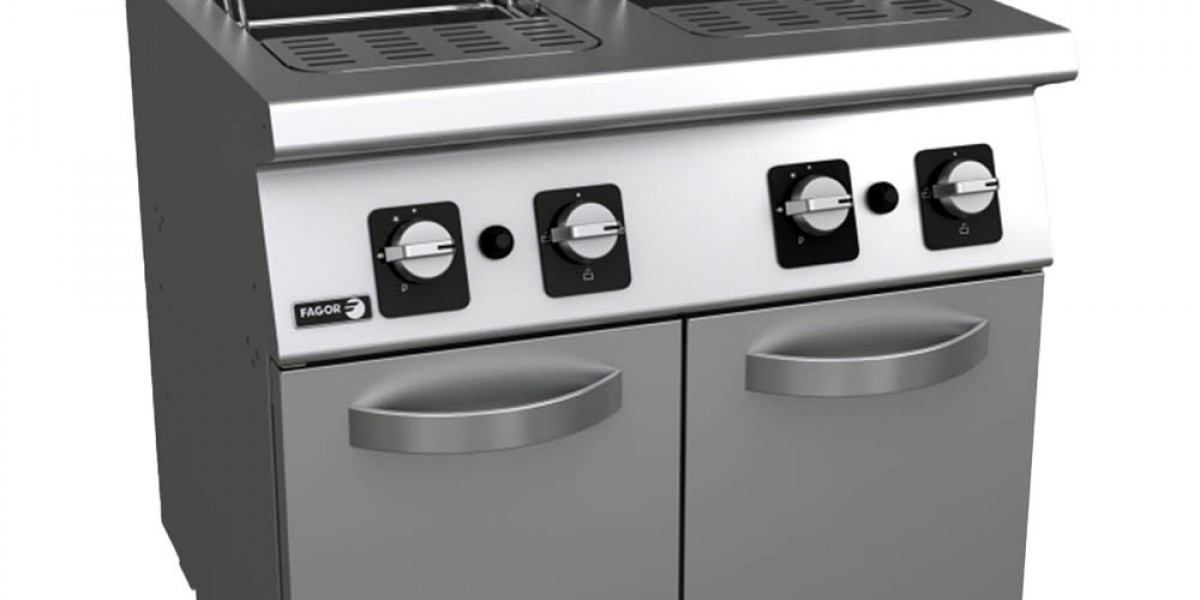When it comes to catering, efficiency, precision, and reliability in the kitchen are paramount. One of the essential pieces of equipment that caterers rely on is a commercial gas cooker. Unlike standard home stoves, commercial gas cookers are designed to handle the high demands of professional kitchens, offering consistent heat, faster cooking times, and greater durability. Understanding their features, types, and maintenance needs is crucial for anyone looking to run a successful catering operation.
Types of Commercial Gas Cookers
Commercial gas cookers come in a variety of designs to meet different kitchen needs:
Freestanding Gas Cookers: These are versatile and often include multiple burners and ovens. They are ideal for caterers who need a combination of stovetop and baking capabilities.
Countertop Gas Cookers: Compact and efficient, these are suitable for smaller kitchens or temporary setups often used in off-site catering events.
Range Gas Cookers: Typically larger with multiple burners and ovens, these are built for high-volume cooking. They are perfect for large catering operations where multiple dishes are prepared simultaneously.
Modular Gas Cookers: These allow caterers to customize their kitchen setup by combining cooking units like burners, griddles, or ovens according to specific needs.
Each type has its advantages, and the choice depends on the volume of food being prepared, space availability, and the nature of the catering service.
Key Features to Consider
When selecting a commercial gas cooker for catering, several features are worth evaluating:
Burner Power and Control: High BTU burners provide intense heat for faster cooking. Precise control is essential for delicate dishes or temperature-sensitive recipes.
Oven Capacity: Depending on the catering scale, having sufficient oven space allows simultaneous cooking of multiple trays, which is crucial for efficiency.
Material and Build Quality: Stainless steel is a common choice because it’s durable, easy to clean, and resistant to corrosion.
Safety Features: Automatic shut-off valves, flame failure devices, and heat-resistant knobs are important to ensure a safe cooking environment.
Ease of Cleaning: Detachable burners, drip trays, and smooth surfaces make cleaning quicker, saving valuable time in a busy kitchen.
Advantages of Using a Commercial Gas Cooker in Catering
Consistent Heat Distribution: Unlike electric stoves, gas cookers provide immediate and even heat, which is essential for preparing dishes consistently.
Faster Cooking Times: Gas burners heat up instantly, reducing cooking time, which is crucial for catering events where multiple dishes need to be served on schedule.
Energy Efficiency: Modern commercial gas cookers are designed to be fuel-efficient, which can help reduce operational costs over time.
Versatility: From boiling and sautéing to baking and roasting, a commercial gas cooker can handle a wide range of cooking tasks, making it indispensable for caterers who must prepare diverse menus.
Durability: Commercial gas cookers are built to withstand the demands of busy kitchens, often lasting many years with proper maintenance.
Installation and Setup Considerations
Installing a commercial gas cooker requires careful planning:
Proper Ventilation: Gas cooking produces heat and fumes that need adequate ventilation to maintain a safe kitchen environment.
Gas Supply: Ensure that the gas supply lines are correctly installed by certified technicians to prevent leaks or hazards.
Space Planning: Position the cooker where it allows smooth workflow, accessibility, and sufficient clearance from walls and other appliances.
Compliance with Regulations: Catering kitchens must adhere to local safety and fire codes when installing gas appliances.
Maintenance Tips
To keep a commercial gas cooker running efficiently, regular maintenance is essential:
Daily Cleaning: Wipe down surfaces, remove food debris, and clean drip trays to prevent buildup that can affect performance.
Inspect Burners: Check for clogged or uneven burners that can disrupt heat distribution.
Professional Servicing: Schedule periodic inspections by certified technicians to ensure the cooker is operating safely and efficiently.
Check Gas Connections: Regularly inspect hoses and connections for leaks or wear to prevent accidents.
Common Challenges and Solutions
Even the best commercial gas cookers can face challenges:
Uneven Heating: This can often be fixed by cleaning the burners or adjusting the flame.
Wear and Tear: High-frequency use can cause knobs or components to degrade; replacing parts promptly avoids larger issues.
Space Limitations: In smaller kitchens, a modular or countertop gas cooker can provide a practical solution without compromising cooking capacity.
Understanding these challenges allows caterers to anticipate issues and maintain smooth kitchen operations.
Choosing the Right Commercial Gas Cooker
When selecting a commercial gas cooker for your catering business, consider the following factors:
Volume of Food Preparation: Larger operations require cookers with higher capacity.
Menu Variety: If preparing a wide range of dishes, versatility and precise temperature control are key.
Kitchen Layout: Ensure the cooker fits seamlessly into your workflow without obstructing movement.
Budget and Operational Costs: Factor in purchase price, energy consumption, and long-term maintenance.
Investing in the right commercial gas cooker not only improves efficiency but also enhances the quality and consistency of dishes served, which is vital for customer satisfaction in catering services.
Final Thought: Reliable Equipment for a Successful Catering Operation
Selecting the appropriate commercial gas cooker is a crucial decision for any catering business. It ensures efficiency, safety, and consistent cooking results, allowing caterers to deliver high-quality food under tight schedules. To explore a wide range of options and accessories, visiting a reputable kitchen supply store can provide the guidance and equipment needed to set up a professional and reliable catering kitchen.








